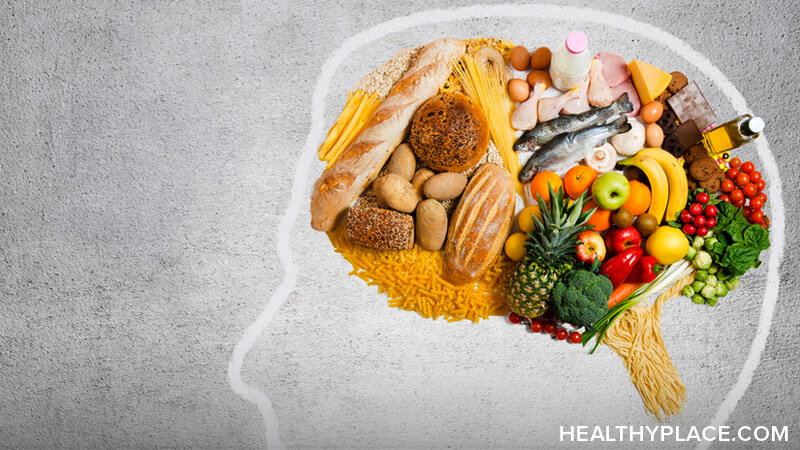Our satisfaction in bed is not rising in relation to the public obsession with open sexuality - in fact, quite the opposite.
Ah, spring. The lark is in song, the daffodils are in bloom and "the most sexually explicit film ever" is on general release. Breaking what little ground remains unbroken by Baise-Moi and Intimacy, 9 Songs shows a couple engaged in an activity as commonplace as the weekly trip to the supermarket--but with better box office takings. And it indicates, apparently, our greater "openness" to sex, code for our greater openness to talking or writing endlessly about it. Gallons of ink are lavished on discussing films such as this, as well as Adam Thirlwell's archly titled book Politics, which is actually about sex. Sex is good copy.
Sales of erotic books and sexual manuals have quadrupled in the past decade; lap-dancing is a booming industry; sex shops are being stripped of their seediness; and the internet has become a vast reservoir of sexual images, as we all chill out, relax and enjoy. The line between erotica and pornography has all but disappeared (the best distinction, provided by a French publisher, is that erotica can be read with both hands). But there is a hollowness to the new hedonism. The louder we proclaim our sexual freedom, our casting off of repressive attitudes, our anything-goes morality, the less persuasive the claim becomes. We protest too much.
For, alongside the claimed sexual empowerment, fears are growing about sexually transmitted infections (STIs); the birth rate is falling; sexual maturation among adolescents is being compressed and distorted; and the structure of adult lives is such that we have less sex than is good for us--or at least for our happiness. The story of modern sex is too much noise in public, and not enough in private. The typical adult now probably spends more time listening to people talk about sex, reading about sex and filling in surveys about sex than on the activity itself.
Most of those surveys are pretty worthless, in any case. It is a social researcher's cliche that reported levels of sexual activity and alcohol consumption should always be halved and doubled, respectively. Some findings make good dinner-table conversation. The latest international Durex poll, for example, found that 41 percent of Brits had spanked (or been spanked by) a sexual partner, compared to just 5 percent of Germans. And the results contain gems such as the following: "Macedonians and Serbian Montenegrins are the most sexually satisfied, with 82 percent not needing to fake an orgasm, followed by the Croatians, Hungarians and Italians (75 percent)."
But at least it is something. State funding of research into sexual behavior has been woefully inadequate, given the health risks of STIs. It is telling that Alfred Kinsey's research--now a film-worthy subject--is still cited half a century on. He may have been a pioneer of the serious study of sex, but few have followed.
One of the few recent high-quality pieces of research in the field, by David Blanchflower and Andrew Oswald, uses the US General Social Survey, with a sample size of 16,000, to assess, for the first time, the relationship between sex and happiness. Their conclusion is that "sexual activity enters strongly positively in an equation in which reported happiness is the dependent variable". Say again? "The more sex, the happier the person." So this finding falls squarely into the "academics find facts blindingly obvious to everyone else" category. But if the greatest happiness of the greatest number is a goal for society, as Richard Layard suggests in his new book Happiness: Lessons From a New Science, then sex needs to feature in the utilitarian calculus. Layard barely mentions it.
The Blanchflower-Oswald research suggests the median American has sex two to three times a month (well below the twice a week reported by US respondents to the Durex survey), and that those who have sex more often report significantly higher levels of happiness. But it also shows how many sexual partners you should have in 12 months if you want to maximize your happiness. The answer? No, not 365. One. As the two economists say, this "monogamy result ... has conservative implications".
Their research also makes use of a well-known finding by the Nobel prize-winner Danny Kahneman: in a chart of typical activities, sex ranks top of the happiness table and commuting bottom. (The research was conducted among an all-female group.) The Swiss economists Bruno Frey and Alois Stutzer recently calculated that the average two-way commute to a workplace in London now takes six hours and 20 minutes a week--an increase of 70 minutes compared to 1990. Assuming that the typical Brit is having sex perhaps once a week, the balance between the two activities speaks for itself. With such separation of home and work, few couples can take Kahlil Gibran's advice to "rest awhile in the noontide to meditate love's ecstasy".
None of which is to say that sex is the ultimate goal of human endeavor, that commuting is evil, or that the pursuit of material wealth and career success should take a back seat to bonking. But given that fewer than a third of us are happy with the amount of sex we have, is this how we want to live?
Despite the intellectual appeal of the Blanchflower-Oswald paper and its utilitarian case for more sex within stable, monogamous relationships--one may feel that when the value of sex is captured in equations, at least some of the magic is lost. Michel Foucault, in the first volume of his History of Sexuality series, argued that there were two "great procedures for producing the truth of sex"--the ars erotica and the scientia sexualis. "In the erotic art," he wrote, "truth is drawn from pleasure itself, understood as a practice and accumulated as an experience; pleasure is not considered ... by reference to a criterion of utility, but first and foremost in relation to itself." A degree of reserve, of secrecy, of mystique, is required for the ars erotica, which stands in contrast to the pragmatism of Masters and Johnson and the empiricism of the social scientists.
The scientia sexualis, an "achievement" of the western Enlightenment as Foucault acknowledges, finds its satirical end-point in the "orgasmatron"--a machine that delivers instant orgasms--in Woody Allen's film Sleeper. This scientific spirit pervades modern sex. Viagra (Sildenafil citrate) conquers natural sexual waning. Absence of sexual desire is pathologized for the benefit of pharmaceutical firms. Books, coaches and courses by psychologists help us get in touch with our "sexuality". (We used to just have sex.)
The quasi-science of sex has meanwhile reinforced and legitimized the outpouring of sexual material. As a result, our sexual consciousness has been raised, but in a way that runs counter to the spirit of sex itself. Men have long made women feel insecure--now they are returning the compliment. The increase in the number of men seeking cosmetic surgery or penis "augmentation" may be welcomed as signs of patriarchy on the wane, but it is not clear that it otherwise constitutes any sort of progress.
And then we talk about it. Endlessly. Foucault argues that the need to share has become a cornerstone of western discourse. "The confession became one of the west's most highly valued techniques for producing truth," he writes. "And we have become a singularly confessing society." That was in 1976, long before live TV programs such as Fool Around with My Girlfriend. Hundreds of TV programs, frequently of a confessional nature, focus on sexual matters, and the agony aunt pages of newspapers and teen magazines are peppered with sexual anxieties and issues. "Let's talk about sex" has become less a request than a command.
The purveyors of this material portray it as casting off outdated repressions. As Foucault wrote: "If sex is repressed, that is, condemned to prohibition, non-existence, and silence, then the mere fact one is speaking about it has the appearance of a transgression. Something that smacks of revolt, of promised freedom, of the coming age of a different law, slips easily into this discourse on sexual oppression. Some of the ancient functions of prophecy are reactivated therein. Tomorrow sex will be good again." So anybody who complains about page three (does anybody, any more?), lap-dancing clubs or the pornonet--sorry, internet--can be dismissed as reactionary, as wanting to keep us all in a repressed, asexual bondage. But the history of sex is more complex. As Matthew Sweet argues in his Inventing the Victorians, the denizens of that era were far from straight-laced. As he points out: "The Cremorne Gardens--a pleasure park near Battersea Bridge--were more of a meat market than the sleaziest 21st-century club." And while the sheer volume of sexual self-help books today is unprecedented, many of the messages are not new. The French "Newlyweds' Bedside Bible", published in 1885, encouraged the couple to aim for simultaneous orgasm.
If the revolution has been overplayed, the problem--for advertisers at least--is that we are becoming indifferent to its rhetoric. There is some evidence, cited by David Cox (New Statesman, 1 January 2005), that sexual imagery is losing its impact as consumers begin to "tune out" the torrent of flesh on billboards and TV. At the same time, the publication of sex causes heightened anxiety and body-consciousness among teenagers. Too much sex in the media has made adults immune and adolescents insecure.
The pressure on girls to look sexy, act sexy and indeed have sex has intensified significantly. One result is the terrible teen paranoia about body shape and the resulting eating disorders. Another is earlier sexual activity--one in three 15-year-olds has had sex. Of these, a third did not use a condom the last time they had sex, and a fifth used no contraception at all. Among boys aged 13 to 19, cases of gonorrhea tripled between 1995 and 2002. Cases of chlamydia--which the Health Secretary John Reid has said is the single biggest health concern for the future--quadrupled in the same period. Sex education in the UK is too little, too late.
Most adults, according to the British Social Attitudes Survey, think that the main cause of teenage pregnancy is "lack of morals among the young". This is hypocrisy writ large. Where do we think young adults get their moral signals from? What is society saying to them about sex? If the moral architecture of sex is crumbling for adults, small wonder that adolescents struggle to equip themselves with an approach to sex that will protect them from its potential side-effects.
According to a survey by NetDoctor, an online medical advice service, a fifth of adults have "cybered" (had sex to orgasm with someone online). And pornography is almost certainly the internet's biggest business. With growing numbers of adults and teenagers suffering from internet sex addiction ("your next hit only a click away"), what will this mean for the next generation as it achieves sexual discovery? There's nothing new in 14-year-old boys looking at porn. What is different is the range, volume and accessibility of sexual material that technology allows.
For political policy-makers, sex features only as a health problem. "Sexual health" is one of those Orwellian terms that means sexual disease. STIs are a growing issue. Michael Howard has called for a "clear, bold and very public" campaign along the lines of the Aids campaigns of the 1980s--which, he seems to forget, were mostly ineffective. Labour is, as ever, preparing a strategy. Only the Liberal Democrats have suggested earlier, better-quality sex education. The latest recommendation of the health select committee on this issue is that personal, health and social education be made compulsory--so that sex education is placed in the framework of a conversation about relationships, well-being and life-choices. But given their fear of the Daily Mail, don't expect ministers to act on this idea.
Howard was on to something when he talked about helping teenagers resist peer pressure to have sex at a young age--he just didn't go far enough. The pressure does not come only from peers--it comes from every ad, every TV programme. We need not only to encourage safe sex, but also to examine the broader social context. As a public health policy, it is the equivalent of combating TB without reference to the water supply.
For all Tony Blair's recent attempts to reclaim the moral high ground--not least by bringing his faith to the fore--it seems unlikely that much will be done either to restrain the public tide of sex or to equip young people to deal with it. Trevor Beattie, the man responsible for turning boring old French Connection into fcuk, now runs Labour's ad campaign. The fcuk branding perfectly exemplifies the coarse, shallow sexualisation of public life, to the detriment of us all--turning off adults and freaking out kids. The saturation of consumer life, fashion, technology, music, films, magazines and literature with sex has reached the point where it is no longer liberating our sexuality but cheapening it.
Even for adults, Foucault's "glittering array" of sex does not represent liberation. The freedom to fancy and make love with the people of our choosing is central to human autonomy. All attempts to restrict this liberty should be resisted. But these freedoms should not be confused with a constant, commercially funded, sexual publicity drive. Sexual liberty is not synonymous with market libertarianism.
There is a risk that, in taking such a position, one sounds prudish or moralising. So be it. It is perhaps the most savage irony of all that sex is used to sell the consumer products which we spend so much time and energy pursuing that we leave too little space in our lives for the genuine article.
By confusing sexual and commercial freedom, and private liberties with public litanies, we have done ourselves a disservice. Good sex is part of the good life. Our happiness hinges on the quality of our sexual lives. But our satisfaction is not rising in relation to the public obsession with sex--indeed the opposite. Liberalization has run its course. Amid all the whips and toys and aids and advice, we are in danger of turning sex itself into a mere fetish.







